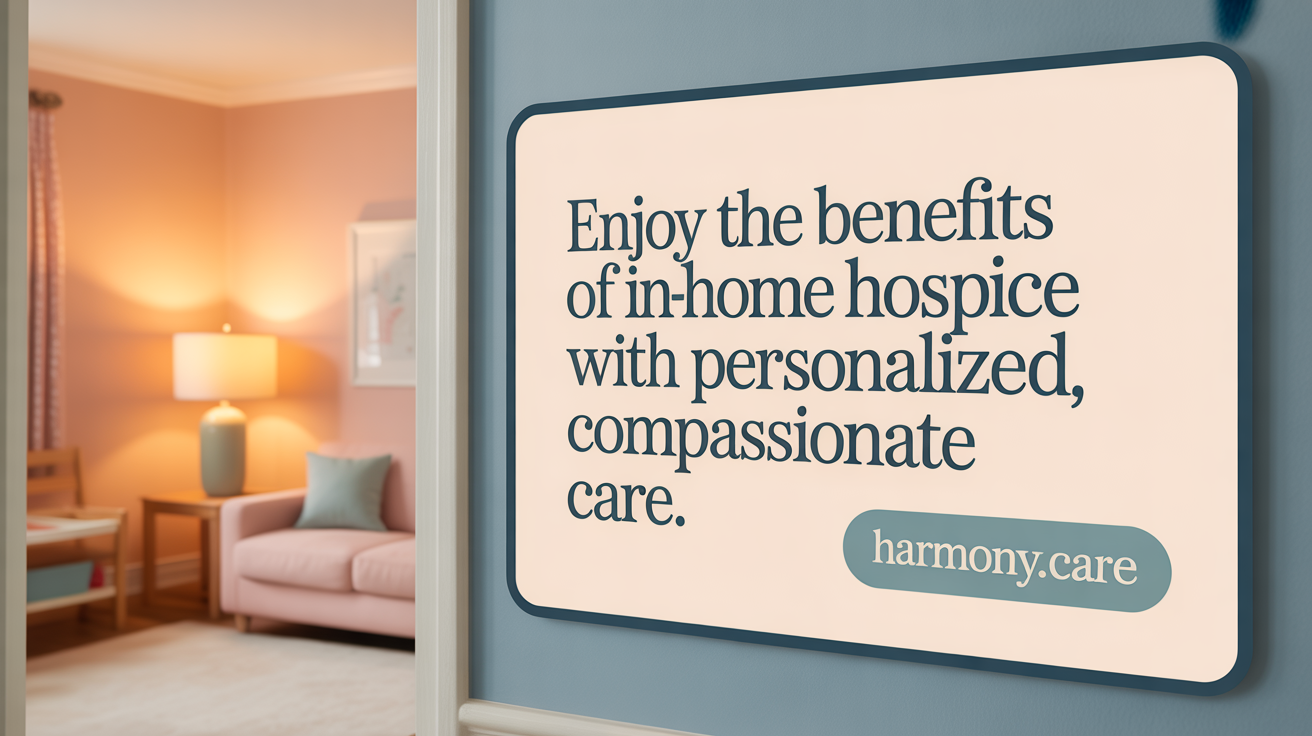Understanding the Role of Hospice Care in Comfort and Dignity
Hospice care offers terminally ill patients a compassionate, holistic approach to end-of-life care focused on comfort, dignity, and quality of life. Delivered primarily in patients' homes or familiar environments, hospice care addresses not only physical symptoms but also emotional, spiritual, and practical needs. This article explores how hospice care improves comfort and preserves dignity for patients at home, supported by a multidisciplinary team dedicated to supporting both patients and their families throughout the journey.
The Cornerstones of Hospice Care: Compassion, Comfort, and Communication

What are the three C's of hospice care?
The three C's—Compassion, Comfort, and Communication—serve as the foundation of hospice care. Compassion refers to the emotional and empathetic support provided to patients and their families, ensuring they feel valued, understood, and cared for during difficult times. Comfort is the focus on alleviating physical pain, managing symptoms, and reducing distress to promote a sense of peace and dignity for those nearing the end of life. Communication involves transparent, ongoing dialogue with patients and families, informing them about care options, respecting their wishes, and involving them in decision-making processes. This open communication fosters trust and ensures that care aligns with personal values, making the end-of-life experience as respectful and meaningful as possible.
How do holistic, patient-centered care approaches support quality of life?
Hospice care emphasizes meeting the whole person’s needs—physical, emotional, social, and spiritual. Personal care plans are tailored to each individual's preferences, helping them maintain independence and control over their daily routines. This respect for personal values encourages dignity and allows patients to focus on meaningful moments like connecting with loved ones or engaging in comforting activities. Multidisciplinary teams—including doctors, nurses, social workers, and chaplains—collaborate to manage symptoms effectively and provide emotional and spiritual support. Such comprehensive, patient-centered care significantly enhances quality of life during one’s final days.
Why is the role of empathetic support important?
Empathy plays a crucial role in hospice care, fostering an environment where patients feel safe and understood. Emotional and psychosocial support helps ease fears, reduce feelings of isolation, and process complex emotions that arise near the end of life. By listening actively and providing compassionate presence, hospice professionals help patients and families find peace and acceptance. This empathetic approach not only improves emotional well-being but also reinforces dignity and respect, crucial elements that uphold the core value of hospice care: that individuals deserve comfort and dignity at every stage of their final journey.
| Aspect | Description | Supporting Details |
|---|---|---|
| Compassion | Emotional support and empathy | Ensures patients and families feel cared for and understood |
| Comfort | Pain relief and symptom management | Focuses on physical well-being and dignity |
| Communication | Transparent, supportive dialogue | Keeps patients and families informed and involved |
This integration of the three C's creates a respectful, supportive environment where terminally ill individuals can experience their final days with dignity, comfort, and meaningful connection.
Providing Comfort Care at Home: Managing Symptoms and Enhancing Quality of Life

What does hospice care do to provide comfort care?
Hospice care centers on alleviating physical, emotional, and spiritual suffering for patients with a terminal illness, often with a prognosis of six months or less. A dedicated multidisciplinary team—including doctors, nurses, social workers, chaplains, and volunteers—works together to tailor care plans that address each patient’s unique needs and preferences.
At the heart of comfort care are symptom management techniques that aim to reduce pain, breathlessness, nausea, anxiety, and depression. This involves the use of medications, advanced therapies, and supportive techniques that promote maximum comfort. For example, pain relief might be achieved through medication adjustments, nerve blocks, or alternative therapies like massage or relaxation techniques.
Medications are carefully administered to control distressing symptoms and prevent crises, while therapies such as counseling, spiritual care, and holistic practices help support emotional and spiritual well-being.
Hospice services are often provided in familiar, peaceful environments—most commonly in the patient's own home, but also in skilled nursing facilities or hospice centers. This setting allows patients to remain in their personal space, surrounded by loved ones, which fosters dignity, independence, and emotional peace.
Insurance plans like Medicare, Medicaid, and private insurers typically cover hospice and palliative services fully, making access easier for patients and families.
Beyond clinical interventions, hospice emphasizes respecting patient wishes and personal values. It avoids aggressive treatments aimed at curing disease, shifting focus solely to comfort and quality of life.
Support for families is an essential aspect of hospice care. Families receive guidance, education, and bereavement support, helping them navigate emotional challenges and caregiving responsibilities.
In summary, hospice care provides a comprehensive approach to comfort by managing symptoms effectively, supporting emotional and spiritual needs, and ensuring that patients can spend their final days with dignity, respect, and peace.
Upholding Dignity at Home Through Personalized, Respectful Care
How does hospice care focus on maintaining and improving the patient's dignity and comfort?
Hospice care emphasizes respecting each individual's dignity and comfort by providing highly personalized and compassionate services. A multidisciplinary team—comprising doctors, nurses, social workers, chaplains, and volunteers—collaborates to manage pain and symptoms effectively, ensuring physical comfort. These professionals tailor care plans according to the patient's needs, preferences, and values, which helps preserve independence and control.
Care is often provided in settings the patient chooses, such as their own home, fostering a sense of familiarity and autonomy. This environment allows patients to remain surrounded by their belongings, pets, and routines, significantly reducing anxiety and promoting a peaceful end-of-life experience.
Respect for patient wishes is central to hospice philosophy. Patients are actively involved in decision-making about their care, including preferences for treatments, rituals, and daily routines. This approach ensures they feel valued and in control, even during vulnerable moments.
In addition to physical symptom relief, emotional and spiritual support plays a vital role in maintaining dignity. Counseling, spiritual guidance, and respectful communication help address fears and existential concerns, reinforcing a sense of worth and acceptance.
Overall, hospice care creates a supportive environment where patients can live their final days with dignity, comfort, and meaningful connection. By focusing on individual needs and honoring their personal wishes, hospice ensures that each person experiences a respectful, peaceful, and authentic end-of-life journey.
Benefits of Hospice and Palliative Care at Home: Comfort, Control, and Connection

What are the benefits of hospice and palliative care in a home setting?
Hospice and palliative care provided at home offer many advantages for patients facing serious or terminal illnesses. One of the main benefits is personalized symptom management, which is tailored to each individual’s specific needs. This ensures a higher quality of life, with effective relief from pain and discomfort, while preserving dignity.
Being cared for at home allows patients to remain in familiar surroundings that promote emotional stability and a sense of safety. The comfort of home settings also encourages patients to maintain their routines, engage with loved ones, and focus on meaningful moments.
Another key benefit is a significant reduction in hospital stays and invasive interventions. Home hospice care often results in fewer emergency visits and hospital admissions, especially during the final weeks or days. This not only enhances comfort and peace but also lowers healthcare costs.
Family involvement is central to in-home hospice care. It empowers loved ones to participate actively in daily care routines, decision-making, and emotional support. This close involvement can strengthen relationships, reduce feelings of helplessness, and foster a sense of connection during a challenging time.
Caregivers also receive guidance, education, and respite services, helping them manage their own stress and fatigue. Overall, home-based hospice and palliative care promote a compassionate, dignified, and patient-centered approach, ensuring that individuals experience comfort, control, and connection as they approach the end of life. This holistic care model respects patient preferences while supporting families through their caregiving journey.
Supporting the Whole Person: Emotional, Spiritual, and Physical Care at Home
 Hospice care at home offers comprehensive support that addresses the emotional, spiritual, and physical needs of patients facing terminal illnesses. This holistic approach is made possible by a dedicated interdisciplinary team consisting of physicians, nurses, social workers, chaplains, and volunteers who collaborate to create personalized care plans that respect each individual's unique preferences and values.
Hospice care at home offers comprehensive support that addresses the emotional, spiritual, and physical needs of patients facing terminal illnesses. This holistic approach is made possible by a dedicated interdisciplinary team consisting of physicians, nurses, social workers, chaplains, and volunteers who collaborate to create personalized care plans that respect each individual's unique preferences and values.
Physically, hospice teams focus on managing symptoms such as pain, nausea, difficulty breathing, and fatigue through medications, therapies, and physical care techniques. This ensures patients experience maximum comfort and dignity in their final days. Emotional and psychological support is equally vital; trained counselors and social workers provide counseling sessions and support groups, helping patients and families cope with fears, grief, and emotional distress associated with terminal illness.
Spiritual care plays a central role in hospice services. Chaplains and spiritual counselors offer support tailored to each patient's faith and beliefs, facilitating spiritual rituals, meditation, prayer, and existential conversations. These services help foster a sense of peace, hope, and connection to something greater, which can be deeply comforting during this sensitive time.
Creating a comforting environment in familiar surroundings enhances a patient’s sense of independence and control. Hospice teams also assist family caregivers by providing education about symptom management, offering guidance on caregiving tasks, and delivering bereavement support for loved ones to cope with loss.
Overall, hospice at home emphasizes dignity, comfort, and personalized support, ensuring that patients feel valued and cared for physically, emotionally, and spiritually. This comprehensive approach helps transform the final stages of life into a peaceful, meaningful experience for both patients and their families.
Navigating the Path to Hospice Care at Home: Understanding the Process

What is the typical process for obtaining hospice care at home?
Starting hospice care at home involves several steps centered on assessment, documentation, and coordinated service delivery. Families or patients can initiate the process by requesting a referral from a healthcare provider or directly reaching out to a hospice organization. The hospice team then conducts a comprehensive assessment, which includes medical evaluations to determine the patient's condition and needs.
A crucial part of the process is obtaining a physician’s certification, confirming that the patient has a prognosis of six months or less if the illness follows its usual course. This certification is necessary to qualify for hospice services and validate that the focus will shift from curative to comfort and supportive care.
Once eligibility is established, the patient or their proxy signs the necessary paperwork, and the patient gives consent for hospice services. Following approval, the hospice team collaborates with the patient and family to develop a personalized care plan tailored to the individual’s preferences, symptoms, and medical condition. This plan emphasizes symptom management, emotional and spiritual support, and guidance for caregivers.
Coordination of services is a vital component. The team arranges for medical supplies, medications, and any needed home medical equipment, ensuring everything is in place for effective care. Regular visits by nurses, doctors, social workers, chaplains, and volunteers are scheduled based on the patient’s needs. This ongoing process involves continuous communication among the patient, family, and healthcare providers to adapt care plans as the situation evolves.
Overall, obtaining hospice care at home is a collaborative, patient-centered process designed to provide comfort, dignity, and support at the end of life. Clear communication and thorough planning help ensure that patients can live their final days with the highest possible quality of life in a familiar environment.
Embracing Comfort and Dignity Through Hospice Care at Home
Hospice care at home offers a unique and compassionate approach that prioritizes the comfort, dignity, and holistic well-being of terminally ill patients in familiar surroundings. By blending expert symptom management, emotional and spiritual support, and personalized care plans, hospice teams create a nurturing environment where patients maintain autonomy and meaningful connections with loved ones. The involvement and support extended to families further ease the emotional burdens of end-of-life care. Ultimately, hospice at home empowers patients to live their remaining time with peace, respect, and comfort, embodying the essence of compassionate care.
References
- How Hospice Care Offers Remarkable Comfort and Dignity for ...
- How Hospice Care Helps Patients Live with Dignity and Comfort
- Hospice Care at Home
- How Hospice Services Ensure Comfort and Dignity in Daily Care
- How Hospice Improves Quality of Life
- Hospice Care - StatPearls - NCBI Bookshelf
- Hospice Care at Home - VNS Health
- How Home-Based Palliative Care Enhances Patient Comfort
- How Home Hospice Brings Comfort During Difficult Times
- The Benefits of Home-Based Palliative and Hospice Care
